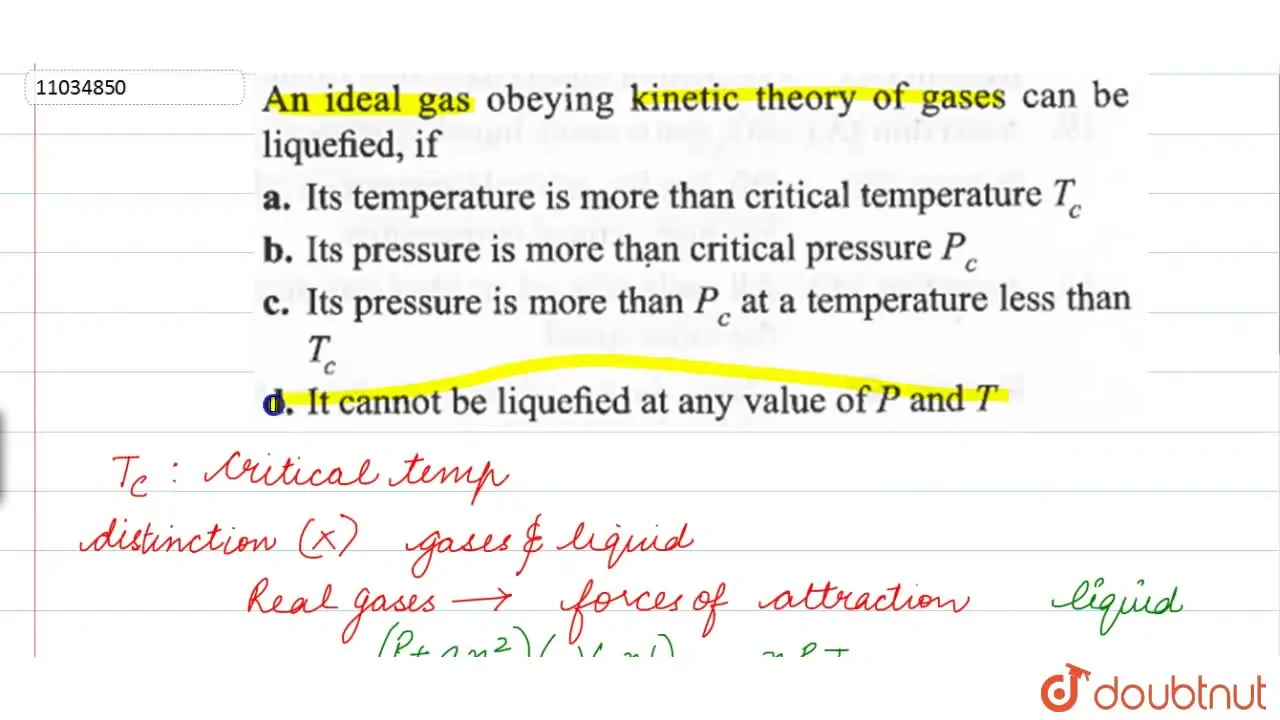An ideal gas obeying the kinetic theory of gases can be liquefied if
can be liquefied if its temperature is more than critical temperature
can be liquefied at any value of T and P.
cannot be liquefied under any value of T and P.
can be liquefied if its pressure is more than critical pressure.
The correct Answer is:c
is the correct answer. For details consult section 5.21
Related Playlists
- BOOK - DINESH PUBLICATIONCHAPTER - STATES OF MATTER : GASES AND LIQUIDSEXERCISE - Select the correct answer34videos
STATES OF MATTER : GASES AND LIQUIDS
- BOOK - DINESH PUBLICATIONCHAPTER - STATES OF MATTER : GASES AND LIQUIDSEXERCISE - Comphension 15videos
STATES OF MATTER : GASES AND LIQUIDS
- BOOK - DINESH PUBLICATIONCHAPTER - STATES OF MATTER : GASES AND LIQUIDSEXERCISE - Very Short Answer Questions25videos
STATES OF MATTER : GASES AND LIQUIDS
- BOOK - DINESH PUBLICATIONCHAPTER - STATES OF MATTER (SOLID STATE CHEMISTRY)EXERCISE - ULTIMATE PREPARATORY PACKAGE21videos
STATES OF MATTER (SOLID STATE CHEMISTRY)
- BOOK - DINESH PUBLICATIONCHAPTER - STRUCTURE OF ATOMEXERCISE - Reason Type Questions1videos
STRUCTURE OF ATOM
Similar Questions
An ideal gas obeying the kinetic theory of gases can be liquefied if
View SolutionA gas can be liquefied
View SolutionA gas can be liquefied
View SolutionAn ideal gas , obeying kinetic theory of gases cannot be liquefied, because :-
View SolutionA gas can be liquefied if:
View SolutionAccording to kinetic theory of gases:
View SolutionAccording to kinetic theory of gases:
View SolutionAccording to kinetic theory of gases,
View SolutionAccording to the kinetic theory of gases
View SolutionAn ideal gas obeying theory of gases can be liquefied if
View Solution


